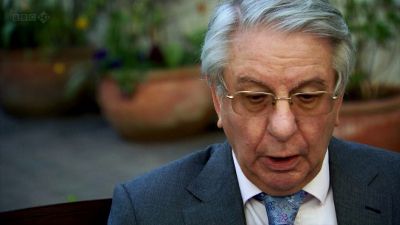The BEST episodes of The Men Who Made Us Fat
Every episode of The Men Who Made Us Fat ever, ranked from best to worst by thousands of votes from fans of the show. The best episodes of The Men Who Made Us Fat!
Around the world, obesity levels are rising. More people are now overweight than undernourished. Two thirds of British adults are overweight and one in four of us is classified as obese. In the first of this three-part series, Jacques Peretti traces those responsible for revolutionising our eating habits, to find out how decisions made in America 40 years ago influence the way we eat now.
#1 - Supersizing
Season 1 - Episode 2 - Aired 6/21/2012
Jacques Peretti investigates how the concept of 'supersizing' changed our eating habits forever. How did we - once a nation of moderate eaters - start to want more? Speaking to Mike Donahue, former McDonalds Vice President, Peretti explores the history behind the idea of supersizing. 40 years ago, McDonalds hired David Wallerstein, a former cinema manager who had introduced the idea of selling larger popcorn servings in his Chicago cinema. Wallerstein realised that people would eat more but they didn't like the idea of appearing gluttonous by going back for seconds. By increasing the portion sizes and the cost, he could sell more food. In 1972, he introduced the idea to McDonalds and their first large fries went on sale.
Watch Now:Amazon
#2 - Corn Syrup
Season 1 - Episode 1 - Aired 6/14/2012
Peretti travels to America to investigate the story of high-fructose corn syrup. The sweetener was championed in the US in the 1970s by Richard Nixon's agriculture secretary Earl Butz to make use of the excess corn grown by farmers. Cheaper and sweeter than sugar, it soon found its way into almost all processed foods and soft drinks. HFCS is not only sweeter than sugar, it also interferes with leptin, the hormone that controls appetite, so once you start eating or drinking it, you don't know when to stop. Endocrinologist Robert Lustig was one of the first to recognise the dangers of HFCS but his findings were discredited at the time. Meanwhile a US Congress report blamed fat, not sugar, for the disturbing rise in cardio-vascular disease and the food industry responded with ranges of 'low fat', 'heart healthy' products in which the fat was removed - but the substitute was yet more sugar.
Watch Now:Amazon